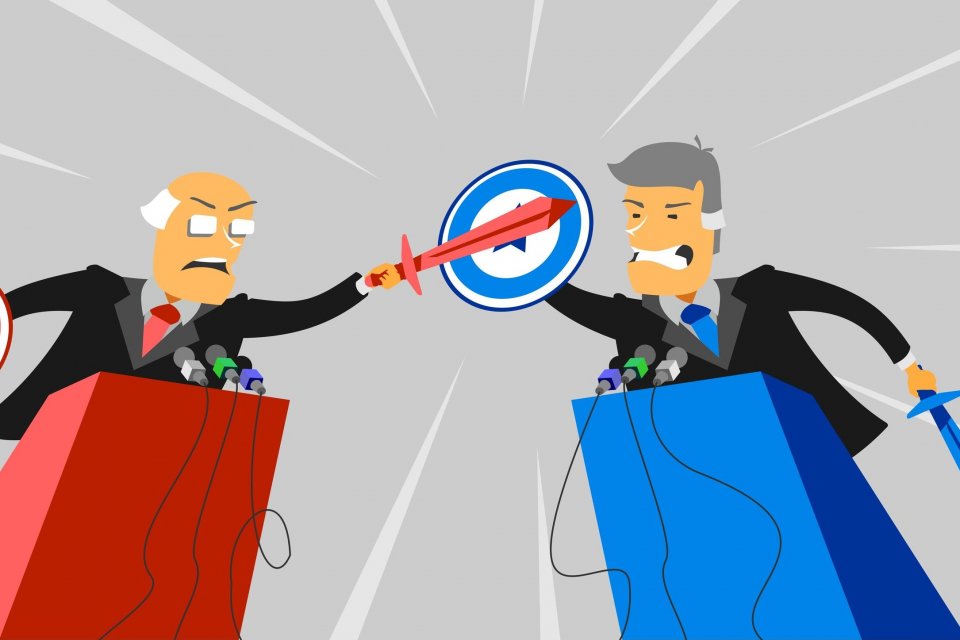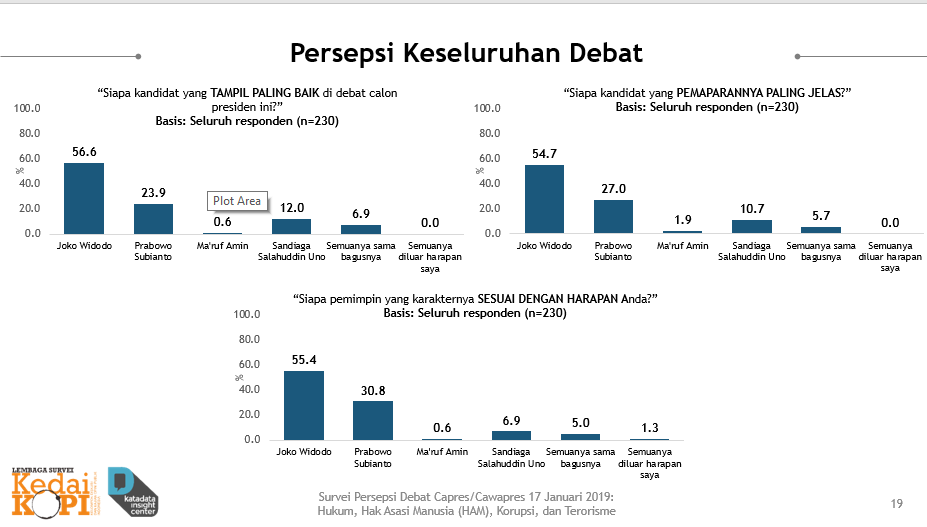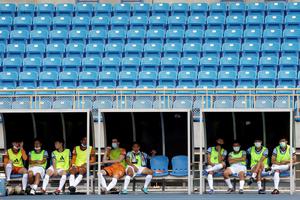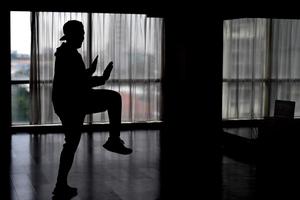Jokowi and Prabowo Fight to Lure Swing Voters in Election Debate

The first debate for presidential and vice presidential candidates initiated by the General Elections Commission (KPU) took place on Thursday, 17 January 2019. This election debate will be held five times and is considered an important event to win the heart of those who have not made a choice (swing voters).
Telesurvey from the Indonesian Public Opinion and Discussion Group (KedaiKOPI) in collaboration with Katadata Insight Centre (KIC) recorded the changes in the swing voters’ choices. A day before the debate, 25.2 percent of 463 respondents stated that they had not made a choice. After the debate, the number of respondents who have not made a choice dropped to 9.4 percent.
“It turned out that the first debate was a consideration for those who had not made a choice,” KedaiKOPI Executive Director Kunto A Wibowo said on Saturday (1/19). Since the distance between the pre- and post-debate surveys was only two days, it was concluded that changes in voters’ choices were caused by the effects of debate and comments about the debate in conventional and social media.
However, Kunto reminded that caution is needed in interpreting and generalizing the survey results because of the high non-response bias. The panel data of respondents reached 2,499 people, which was obtained by multistage random sampling and face-to-face interviews in 2018.
From 2,499 respondents surveyed using telesurvey methodology via telephone and Whatsapp on 16-18 January 2019, only 463 respondents (18.52 percent) responded. From 463 respondents who were contacted before the debate, 372 respondents (80 percent) said they would watch the debate.
After the debate, however, there were 230 respondents (49.7 percent) who actually watched the debate. The margin of error was plus-minus 4.55 percent at the 95-percent confidence interval.
On the other hand, the telesurvey showed that respondents considered the two candidate pairs did not offer new things in the first debate on law, human rights, corruption, and terrorism. About 61.3 percent of respondents saw that Jokowi did not offer new things, while Prabowo was considered not offering new things by 54.1 percent of respondents.
Regarding the performance of the candidates, Jokowi performed better among the others. About 56.6 percent of respondents gave a positive value to the former mayor of Solo. Jokowi’s presentation was considered the most obvious, and his character has met the respondents’ expectations.
Swing voters are predicted to be a determining factor in winning the presidential election. Based on various surveys, the difference in votes between the two candidate pairs was only 20 percent, while the number of swing voters has exceeded it.
In December 2018, an electability survey from Indikator Politik showed Jokowi-Maruf’s electability was 54.9 percent, while Prabowo Subianto-Sandiaga Uno's electability was 34.8 percent.
Based on the same survey, the number of swing voters reached 25 percent, consisting of those who have not made a choice (9.2 percent) and those who can still change their choice (16.2 percent).
“The [debate] effect will be stronger for the swing voters, especially those who have not made a choice,” Indikator Politik Indonesia Executive Director Burhanuddin Muhtadi said recently.







